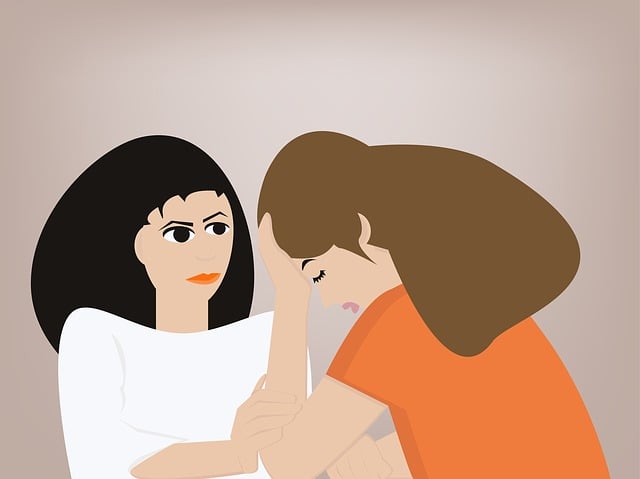In Oregon, civil commitment proceedings defense and mental health law advocacy are crucial for protecting individuals with severe mental illnesses or intellectual disabilities. Organizations like Multnomah County Legal Aid offer vital support, ensuring proper legal representation and due process throughout the Oregon civil commitment process. These advocates educate clients about their rights, defend against restrictions, and empower them to participate in care decisions, fostering better outcomes and upholding dignity in mental health cases.
Navigating complex mental health court cases requires specialized knowledge and passionate advocates. This article delves into the critical role of legal professionals in representing clients through civil commitment proceedings defense. We explore the nuances of mental health law advocacy, emphasizing its vital importance for vulnerable individuals. With a focus on Oregon’s civil commitment process, this guide offers a step-by-step breakdown. Additionally, we highlight the Multnomah County Legal Aid approach to ensuring rights and quality legal representation in mental health cases, providing a roadmap for effective advocacy.
- Understanding Civil Commitment Proceedings Defense
- Mental Health Law Advocacy: A Vital Role for Legal Aid Organizations
- Oregon's Civil Commitment Process: A Step-by-Step Guide
- Rights and Representations in Mental Health Cases: The Multnomah County Legal Aid Approach
Understanding Civil Commitment Proceedings Defense

In Oregon, civil commitment proceedings defense plays a critical role in protecting the rights of individuals facing mental health challenges. The state’s civil commitment process ensures that people with severe mental illnesses or intellectual disabilities receive proper legal representation and due process. Mental health law advocacy groups, such as Multnomah County Legal Aid, offer invaluable support to those involved in these cases. Their expertise lies in navigating complex legal systems, ensuring clients’ rights are upheld throughout the Oregon civil commitment process.
Legal representation for civil commitment is essential as it provides a defense against involuntary confinement or treatment. It empowers individuals to have a voice in decisions regarding their mental health care and future. Understanding the intricacies of civil commitment proceedings defense is vital for both advocates and clients, enabling effective navigation of the legal landscape and ultimately fostering better outcomes in mental health law advocacy.
Mental Health Law Advocacy: A Vital Role for Legal Aid Organizations

Mental Health Law Advocacy plays a pivotal role in ensuring that individuals facing civil commitment proceedings receive adequate legal representation and protection under Oregon’s civil commitment process. Organizations like Multnomah County Legal Aid specialize in this area, providing critical support to those with mental health challenges who may be at risk of involuntary hospitalization or treatment. Their expertise is invaluable in navigating the complex web of rights in mental health cases.
These advocates not only defend against potentially restrictive measures but also empower their clients by educating them about their legal options and ensuring their voices are heard. Through dedicated legal representation for civil commitment, these organizations strive to uphold the dignity and autonomy of individuals grappling with mental health issues while navigating the Oregon civil commitment process.
Oregon's Civil Commitment Process: A Step-by-Step Guide

In Oregon, the civil commitment process plays a critical role in supporting individuals with serious mental illnesses who pose a danger to themselves or others. This step-by-step guide outlines the key aspects of Oregon’s civil commitment proceedings defense, focusing on Multnomah County legal aid and mental health law advocacy.
The process begins with an assessment by a qualified professional, who determines if an individual meets the criteria for involuntary civil commitment. If so, a petition is filed in court, triggering a series of hearings where the rights of the individual are protected. Legal representation for civil commitment is crucial, ensuring that the person understands their options and receives adequate mental health law advocacy. Multnomah County legal aid organizations play a vital role, providing support to ensure fair treatment throughout these sensitive proceedings.
Rights and Representations in Mental Health Cases: The Multnomah County Legal Aid Approach

In Oregon, civil commitment proceedings defense and mental health law advocacy play a crucial role in protecting the rights of individuals facing the Oregon civil commitment process. Organizations like Multnomah County Legal Aid offer specialized legal representation for those in need, ensuring they understand their rights throughout these complex cases. The Multnomah County Legal Aid approach focuses on providing comprehensive support to clients, from initial assessment to representation in court.
This advocacy is essential given the sensitivity and urgency of mental health issues. Legal aid organizations ensure that individuals have access to legal counsel who can navigate the nuances of mental health law. By offering this service, they empower clients to make informed decisions, challenge any potential violations of their rights, and advocate for alternative solutions that promote recovery rather than institutionalization.






